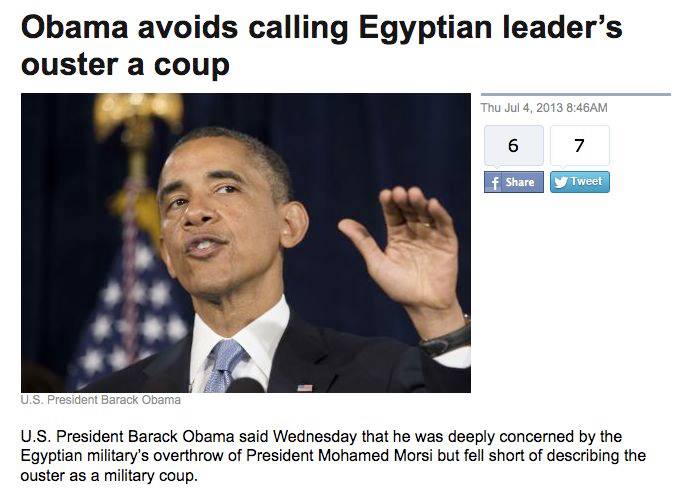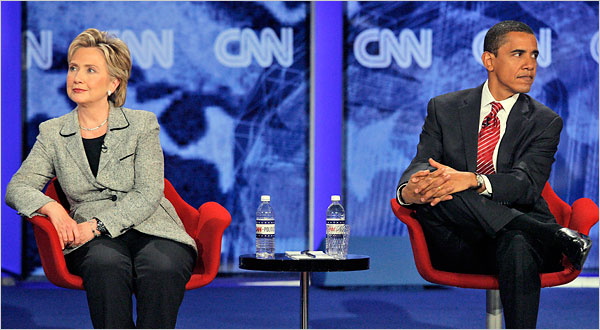A book in the local library, Chris Stedman’s 2012 memoir Faitheist: How an Atheist Found Common Ground with the Religious (Boston: Beacon Press), attracted my interest recently. In this book, Stedman, who self-identifies as an atheist, promotes pluralism and interfaith dialogue among the religious and non-religious. He strives to encourage people of different commitments to respect and listen to each other, as well as challenge each other, to counter the belligerent approach to religious people of those dubbed the New Atheists. He asserts that reconciliation can legitimize the status of the non-religious within society in a way that belligerence towards the religious never can. Continue reading “Making Religion Central”
The C-Word
 There’s been a fair bit of news stories not just about what went on in Egypt the other day but, more specifically, about the U.S. reaction to what went on in Egypt the other day. With around $1.5 billion in annual U.S. foreign aide on the line (second only to its aide to Israel), the reaction is curiously (or predictably? — now that’s a good question!) focused, at least for the time being, on what to classify — and thereby how to understand and react to — what just happened. Sure, an Egyptian general stepped in front of a camera, the duly elected (though now widely unpopular) President was deposed and detained, a number of his party’s senior leadership were also detained, the Constitution was suspended, and military officers swore in its own pick as interim President.
There’s been a fair bit of news stories not just about what went on in Egypt the other day but, more specifically, about the U.S. reaction to what went on in Egypt the other day. With around $1.5 billion in annual U.S. foreign aide on the line (second only to its aide to Israel), the reaction is curiously (or predictably? — now that’s a good question!) focused, at least for the time being, on what to classify — and thereby how to understand and react to — what just happened. Sure, an Egyptian general stepped in front of a camera, the duly elected (though now widely unpopular) President was deposed and detained, a number of his party’s senior leadership were also detained, the Constitution was suspended, and military officers swore in its own pick as interim President.
It looks an awful lot like a coup and it sure smells like a coup, yes — but is it a coup? Continue reading “The C-Word”
Religious “Expression”?
 Some scholars of religion talk as if cultural stuff—icons, myths, rituals, practices, ideologies, discourses, etc.—allows practitioners to “express” themselves, their religious beliefs, or simply their “religion.” Other scholars talk as if the use of this cultural stuff has the effect of “constituting” (perhaps by “performing”) themselves, their religious beliefs, or their identity. Continue reading “Religious “Expression”?”
Some scholars of religion talk as if cultural stuff—icons, myths, rituals, practices, ideologies, discourses, etc.—allows practitioners to “express” themselves, their religious beliefs, or simply their “religion.” Other scholars talk as if the use of this cultural stuff has the effect of “constituting” (perhaps by “performing”) themselves, their religious beliefs, or their identity. Continue reading “Religious “Expression”?”
Blurred Boundaries
 In preparation for the first meeting of Culture on the Edge, at the University of Alabama, the group looked at some resources that purport to study identity in a more dynamic, theoretically-engaged way–e.g., works devoted to studies of diaspora, hybridity, syncretism, etc.–in hopes of finding models for how to study the production and movement of identity but without (unintentionally, perhaps) reproducing the very thing one means to study. Continue reading “Blurred Boundaries”
In preparation for the first meeting of Culture on the Edge, at the University of Alabama, the group looked at some resources that purport to study identity in a more dynamic, theoretically-engaged way–e.g., works devoted to studies of diaspora, hybridity, syncretism, etc.–in hopes of finding models for how to study the production and movement of identity but without (unintentionally, perhaps) reproducing the very thing one means to study. Continue reading “Blurred Boundaries”
